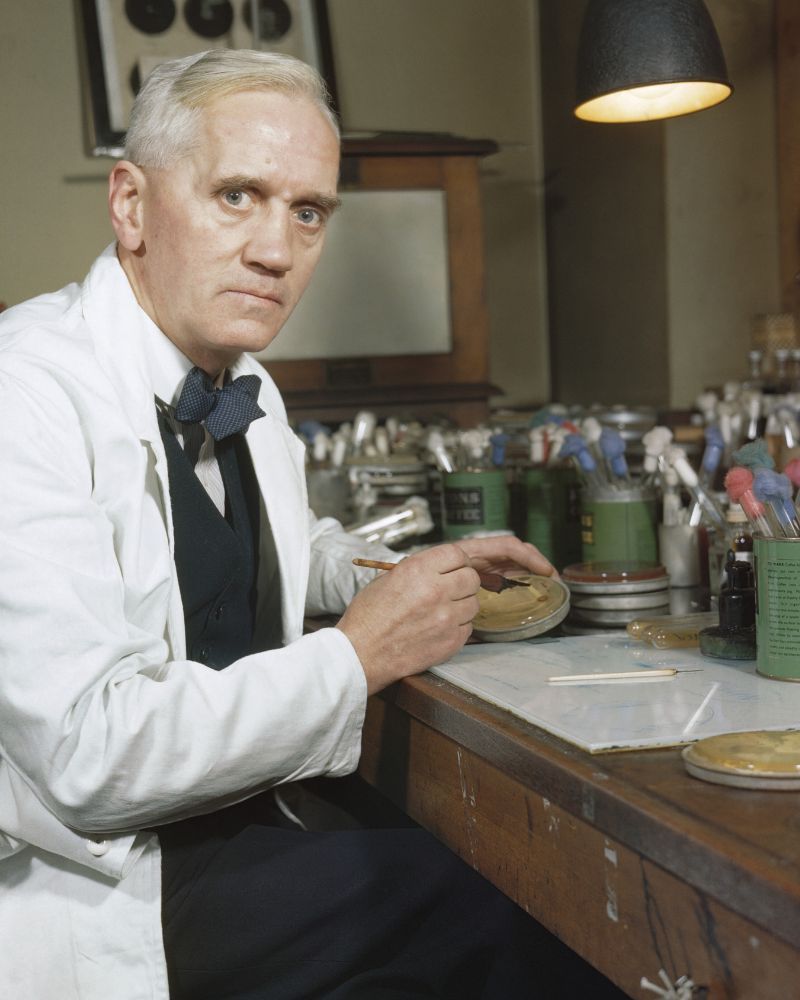The Discovery of Penicillin and Its Impact on Mankind

The discovery of penicillin, the world’s first antibiotic, revolutionized medicine and saved millions of lives. This accidental breakthrough by Alexander Fleming in 1928 changed the course of medical history, providing an effective treatment for bacterial infections and laying the foundation for modern antibiotics.
The Accidental Discovery
In September 1928, Scottish bacteriologist Alexander Fleming was conducting research on Staphylococcus bacteria at St. Mary’s Hospital, London. Upon returning from a vacation, he noticed something unusual in one of his petri dishes. A mold called Penicillium notatum had accidentally contaminated the dish, and around it, the bacteria had been destroyed.
Fleming realized that this mold was releasing a substance that killed bacteria. He named this substance penicillin and published his findings in 1929. However, he struggled to extract and mass-produce it, and his work initially did not gain much attention.
Development and Mass Production
It wasn’t until the 1940s that a team of scientists, including Howard Florey, Ernst Boris Chain, and Norman Heatley, successfully purified and mass-produced penicillin. Their efforts, funded by the U.S. and British governments, led to large-scale production during World War II, where penicillin was used to treat wounded soldiers, reducing infection-related deaths significantly.
Impact on Medicine and Society
1. Revolutionizing Medicine
Before penicillin, bacterial infections like pneumonia, syphilis, tuberculosis, and septicemia were often fatal. Penicillin became the first widely effective antibiotic, transforming medical treatment and increasing survival rates for various infections.
2. Saving Millions of Lives
Penicillin and other antibiotics that followed have saved countless lives. It is estimated that over 200 million lives have been saved since its discovery.
3. Advancing Surgery and Healthcare
The availability of antibiotics made complex surgeries and organ transplants safer by preventing post-surgical infections. It also reduced mortality rates from diseases that were once deadly.
4. Military and Wartime Benefits
During World War II, penicillin played a crucial role in treating infected wounds and diseases among soldiers, reducing deaths from bacterial infections by a significant margin.
5. Birth of the Antibiotic Era
The discovery of penicillin led to the development of other antibiotics, such as streptomycin, tetracycline, and amoxicillin, revolutionizing the treatment of bacterial infections. It marked the beginning of the "antibiotic era," drastically reducing deaths from infectious diseases.
Challenges and Antibiotic Resistance
While penicillin was a miracle drug, its overuse and misuse led to antibiotic resistance—a growing global concern where bacteria evolve to resist antibiotics. Diseases such as tuberculosis and gonorrhea are now harder to treat due to resistant strains. Scientists are continuously working to develop new antibiotics and alternative treatments.
The discovery of penicillin was one of the most significant medical breakthroughs in history. It transformed healthcare, extended human life expectancy, and set the stage for modern antibiotics. However, the rise of antibiotic resistance reminds us of the need to use these life-saving drugs responsibly. Fleming’s discovery remains a cornerstone of medical science, proving that sometimes, the greatest scientific advancements come from unexpected moments.